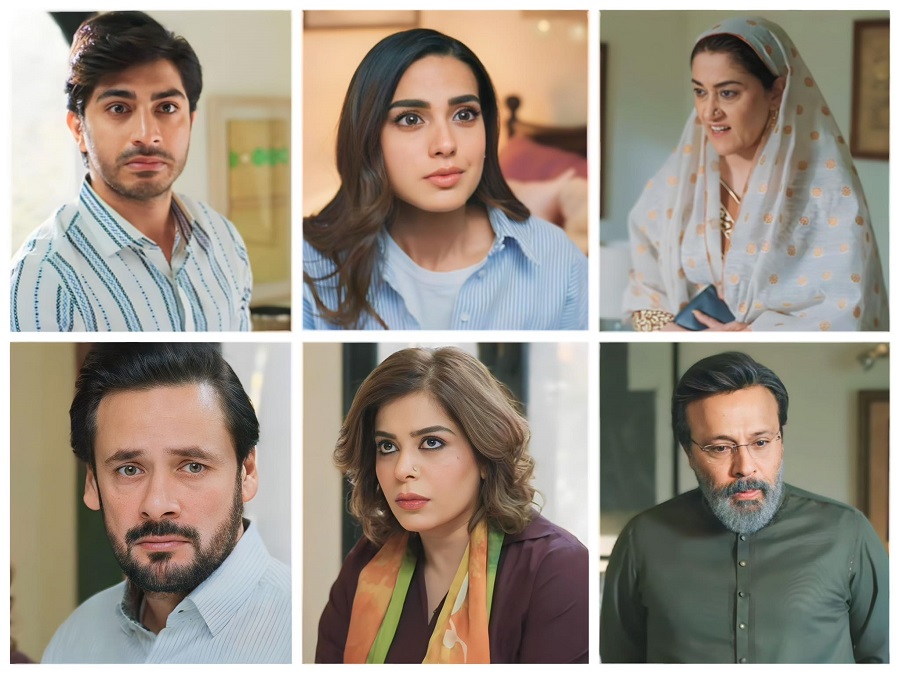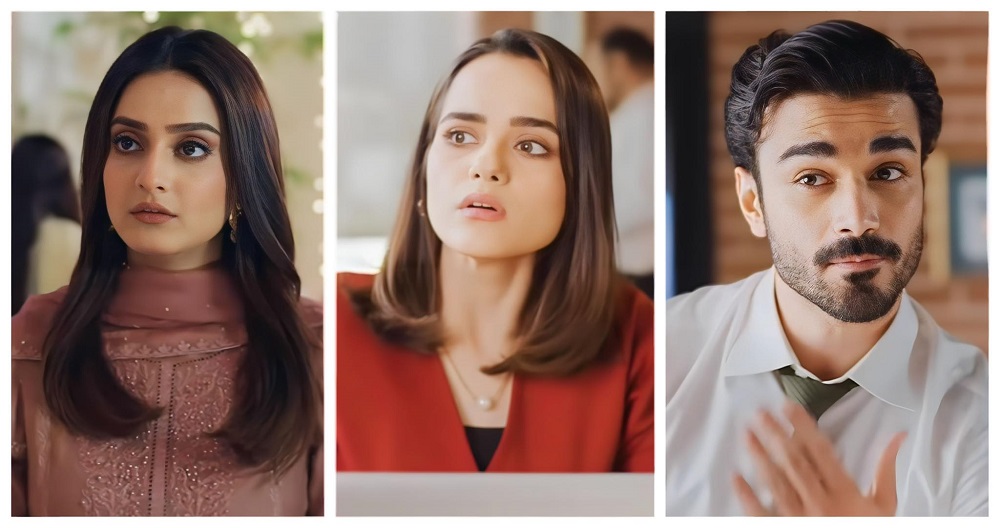Written by: Nadia Akhter
Directed by: Syed Wajahat Hussain
Produced by: 7th Sky Entertainment
Channel: Geo Entertainment
Mannat Murad is one of the few dramas on Geo that I watched till the end. I opted for binge-watching rather than tuning into it every single week. This approach is perhaps one of the reasons why my perspective is different from the prevalent discussions on social media. In this last episode, Mannat Murad’s turbulent marriage took a pleasant turn when everything shifted for the better, with Murad finally advocating for Mannat, ultimately bringing about a positive resolution to their challenges. The second last episode hinted towards a happy ending and I liked the way all the tracks ended even though Niggi did not get her heart’s desire, Fazilat’s happy ending was the pleasant surprise I had been looking forward to for the longest time! The culmination of Mannat and Murad’s journey served as a reminder of the profound impact of prioritizing communication and humility within the context of marriage.
Meaningful Storyline
Problems relating to marriage often take the spotlight in Pakistani dramas. Mannat Murad set itself apart with its distinct approach to addressing these issues. While a significant number of viewers continuously held Murad responsible (and rightfully so), my perspective on the story has consistently differed. The portrayal of Mannat and Murad’s married life served as a vehicle to explore a broader issue—the significant role of elders in the dynamics of a marriage. In a society where adults such as Mannat and Murad are often treated as ‘children’ (ladlay) in their households, the transition into early married life becomes a formidable challenge. This transformative journey becomes even more challenging with the prevailing influence of family dynamics from both sides.
Challenges of a New Marriage
Mannat and Murad’s journey highlighted the significance of affording the newlyweds the room to forge their unique connection without undue interference. Murad’s mother and Mannat’s brother’s characters embodied conventional familial roles, highlighting complexities that can impede the natural progression of a newly married couple’s bond. This story also showed how the real challenge lay not in dismissing the role of extended family but in striking a delicate balance between support and autonomy.
Mannat and Murad’s story also served as a poignant reminder of the significance of approaching marriage with realistic expectations and a steadfast commitment to nurturing this new relationship. Had Mannat and Murad embarked on their marital journey with a sense of preparedness and a genuine desire to cultivate a lasting and fulfilling partnership instead of thinking that this was going to be a walk in the park, there would not have been so many disappointments. The script also shed light on the importance of emotional intelligence and effective communication in the context of a marital relationship. Mannat and Murad both lacked maturity with Murad taking the lead in that department. Murad’s character served as a cautionary element, emphasizing the detrimental impact that immaturity and a lack of transparency can have on the dynamics of a marriage. It prompted the audience to reflect on how maturity and communication play pivotal roles in nurturing a healthy relationship. It was good to see discussions on social media regarding this character since that I believe was the purpose of showing the immature side of this character.
Reality Checks
Despite his imperfections, the writer deliberately refrained from showing Murad as a completely negative character. Instead, the narrative hinted at the potential for growth and development, suggesting that his character flaws were not insurmountable obstacles. This portrayal left room for the viewers to anticipate a positive transformation and a realization of his responsibilities. Murad’s journey, despite his flaws, resonated with me and I found myself rooting for Murad’s personal growth for the most part. There were also times when I felt as if Mannat did not try much to understand Murad’s situation even though she already knew what she was getting herself into.
In my opinion, Mannat Murad turned out to be a thought-provoking drama that had a clear-cut message for all the Razia Chaudhrys and Nafees Bhais, to consider the transformative power of acceptance and the liberating act of letting go for the betterment of the people they claim to love. Sabiha’s character, on the other hand, exemplified the role elders are anticipated to play in such a situation. She provided unwavering support and the right advice where Mannat required it, portraying an ideal representation of the guidance and assistance expected from elders.
This drama also served as a reality check for all the Mannats and Murads out there, challenging the notion that marriage automatically transforms everything overnight. Therefore, addressing a prevalent oversight – the failure to communicate to young individuals that marriages are not a sudden ‘happy ending’ but an enduring endeavor that requires persistent hard work and unwavering commitment. I think that some of Murad’s dialogues in the previous few episodes which shouted entitlement could easily have been chopped down because they did not go well with the character as a whole. They could be the result of his frustrations but I feel that those were not needed.
Performances & Characters That Stood Out
Despite Talha Chahour having already established himself as a commendable actor, Mannat Murad is going to be the project that will elevate him to the recognition and prominence within the industry that he has yet to attain. Iqra Aziz delivered an outstanding performance, harnessing the captivating expressiveness of her beautiful eyes to perfection. Her portrayal was nothing short of impeccable, sustaining brilliance from the opening scenes right till the end. Uzma Hassan once more opted for an unconventional role, shattering stereotypes with her effortless performance. Displaying a remarkable finesse, she brought out the most compelling aspects of her character, skillfully accentuating its positive attributes. I must confess that initially, I found Irsa Ghazal’s performance and character to be quite irksome. However, as the story progressed and her presence on screen lessened, I found myself appreciating the precision with which she infused life into the character. In doing so, she imparted a relatable identity that resonated with many viewers. Noor-ul-Hassan portrayed the over-possessive brother with equal conviction, effectively capturing the struggle to let go. However, his hairstyle was a notable distraction throughout.

It was delightful watching Rabya Kulsoom in a stylish persona and portraying a strong character. Her appearance and portrayal were both impeccably executed, hitting the mark with precision. Sachal Afzal was extremely likable as a non-problematic, supportive, and sensible friend. Both these characters offered viewers a refreshing respite from the surrounding toxicity associated with Murad, creating a welcome contrast that added a positive and enjoyable dimension to the narrative. Sana Nadir also delivered a noteworthy performance in her portrayal of Niggi. Tipu Sharif’s standout performance as the cool brother demonstrated his versatility and talent.

Though not without its imperfections in script and execution, Mannat Murad managed to resonate as a meaningful and enjoyable drama overall. The different approach to storytelling, coupled with convincing portrayals, contributed to a meaningful viewing experience. However, Geo Entertainment needs to cut down on the flashback scenes unless they believe that the majority of their viewers have short-term memory loss! This hinders the entertainment value and flow of their dramas and the repetitiveness is annoying.
Did you watch Mannat Murad? Share your views.


